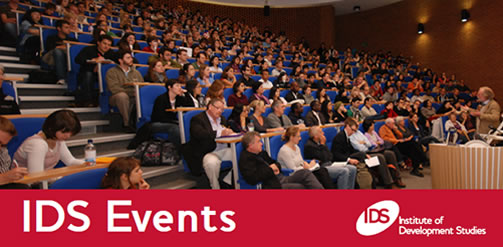In the third Conflict, Violence and Development Seminar this term, Yashodhan Ghorpade presents his paper which examines how conflict affects households’ access to aid programmes in the aftermath of the massive 2010 floods in Pakistan. Using IV-estimation to correct for the endogeneity of conflict exposure and access to aid, he finds that conflict reduces household access to two large government-run aid programmes – the Benazir Income Support Programme (BISP) and the Citizens Damage Compensation Programme (CDCP).
This effect of conflict on access to cash transfers holds even after controlling for an array of potential confounders including state presence, community infrastructure, historical patterns of institutional development, linguistic fractionalisation and proximity to administrative capitals and army cantonments. The lower access to aid in conflict-affected areas manifests as the complete exclusion of villages from the programmes, as well as lower rates of within-village coverage.
Yashodhan then further examines intra-village targeting dynamics across areas differently affected by conflict and finds that female-headed households are more likely to receive BISP transfers in peaceful areas, but not in conflict-affected tehsils (sub-districts), and that the landed elite are less likely to receive state transfers in high-conflict tehsils. In conclusion, he will discuss potential reasons why conflict reduces access to aid in Pakistan.
About the Speaker:
Yashodhan Ghorpade is a doctoral student researcher in economics at IDS, and a Visiting Research Fellow at the Pakistan Strategy Support Program of the International Food Policy Research Institute (IFPRI), Washington, D.C. His current research examines the links between conflict, social protection and poverty in Pakistan. He has also previously worked with IFPRI – India, the World Bank, the ILO Child Labour Programme and Oxford Policy Management Ltd. on research studies focusing on social protection and child labour. Yashodhan holds an MA in Development Economics from the University of East Anglia, UK and a BA (Honours) in Economics from the University of Delhi, India.


